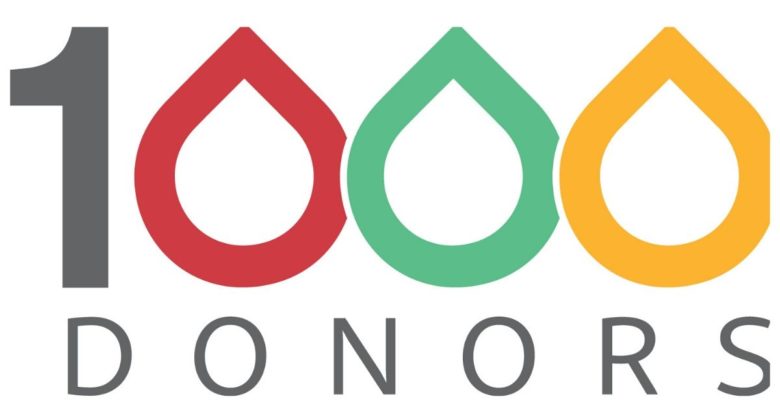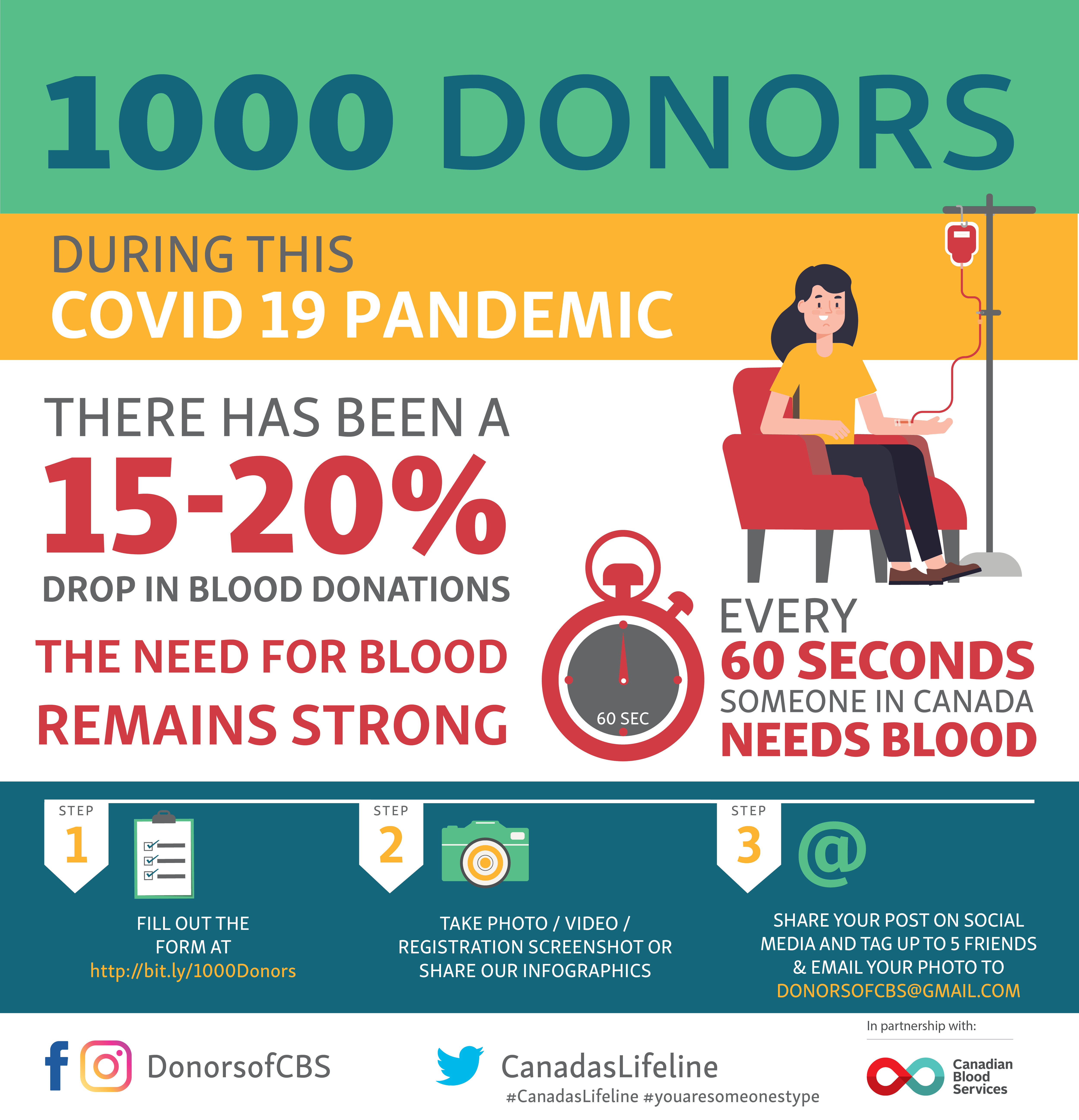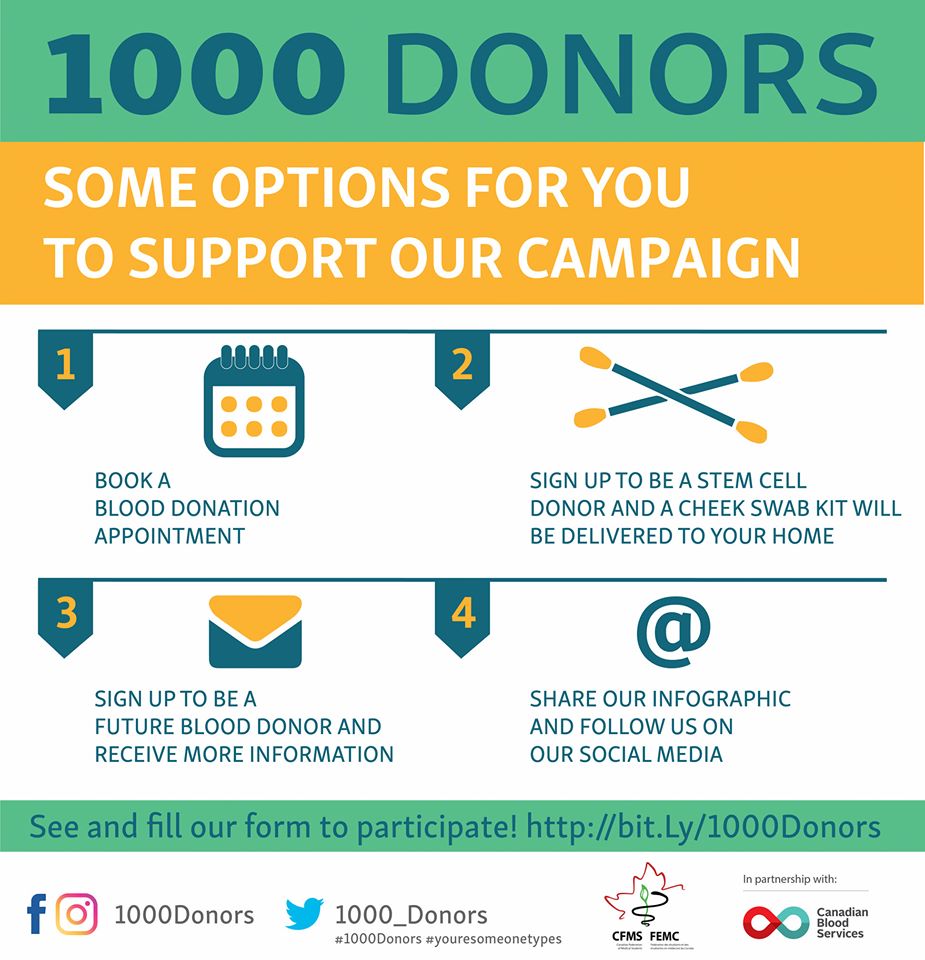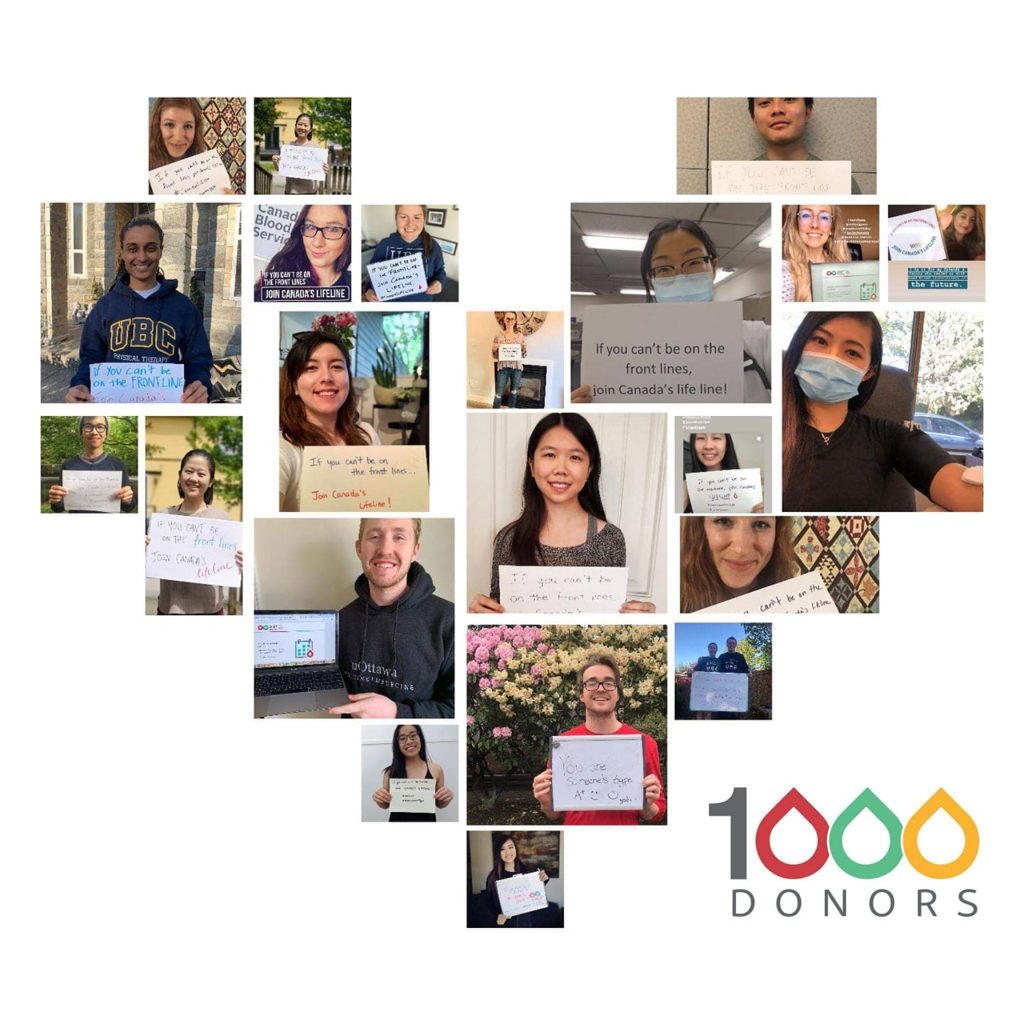1000 Donors campaign aims to fill pandemic need for blood donors
The national campaign has responded to the drop in donors since the pandemic started
 1000 donors
1000 donorsIn the midst of the pandemic, a group of university medical students are looking for 1000 blood and stem cell donors to help Canada’s lifeline.
The 1000 Donors initiative was started to address the need for blood and stem cell donors, especially during the pandemic, where there has been a drop in donors. The campaign, started in May by a group of medical students at the University of British Columbia (UBC), aims to spread awareness of the need for blood and stem cells, and hopes to recruit 1000 people to donate blood or sign up for stem cell donation.
The initiative has spread across the country, including to Edmonton, where it is run by a group of medical students at the University of Alberta. People can use the form on their Facebook page to get more information on how to donate and to participate until the end of July.
As of June 28, the national initiative has had 137 blood donations, 55 sign-ups and 97 stem cell sign-ups, a total of 289 donations.
Shuo Chen, a U of A medical student and an organizer of the 1000 Donors campaign in Edmonton, said since the pandemic, there has been a 15 to 20 per cent drop in donors. Due to precautions taken against the COVID-19 virus, there has also been a reliance on domestic instead of international stem cell donors. With this gap in donations, they decided to get involved.
“We were kind of inspired to make a difference in our community during these difficult times,” he said. “The need for blood is as great as ever, donating blood is still as easy and quick as always, and Canadian Blood Services is taking every precaution to minimize the risk of contracting COVID-19.”
One of the medical students organizers from the UBC campaign reached out to Chen to expand the initiative to Edmonton.
“I felt like it was a great chance for me to get involved and make a positive impact on my community during these tough times,” he said.“I reached out to some of my contacts and built a small team of medical students,[and partnered] with the Canadian Blood Services Youth Committee executives,” he said.

Students can get involved by filling out the form on their Facebook page to sign up for more information, to volunteer with the initiative and for instructions on how to sign-up to donate blood. Chen also encourages students in organizations to use their platform to spread the message to encourage people to donate blood or stem cells.
If students have donated blood, signed up for stem cell donation, or witnessed kind acts in the community during the pandemic, he added, they can send 1000 Donors their stories through 1000 Donors’ social media, where they post them daily to highlight kindness during the pandemic and reasons to donate.
The national 1000 Donors launched with a social media campaign called the “Tag a Friend Challenge,” inspired by other social media campaigns. Participants take a picture with the slogan “If you can’t be on the front lines, join Canada’s lifeline,” or share infographics about the need for blood on social media and then tag five people to donate or spread the message.
“The point of this campaign is to make it easy for anyone to participate regardless of whether or not they can donate blood or become a stem cell donor,” Chen said.

The 1000 Donors initiative has also organized the Blood Bowl, a competition between student groups across the country, including fraternatives, sororities, athletic teams and high schools. Teams can earn points by booking an appointment to donate blood, signing up to be a stem cell donor, sharing the message and submitting a photo, video or story to the 1000 Donors. The competition started during National Donors’ Week, June 8 to 14, and will continue until the end of July.
The campaign continues until the end of July, and while they would like to reach their goal of 1000 donors, Chen said, awareness is what’s important.
“So far, we’re already happy with the progress we’ve made, and ultimately, the most important thing is to just raise awareness of this important cause,” he said.





